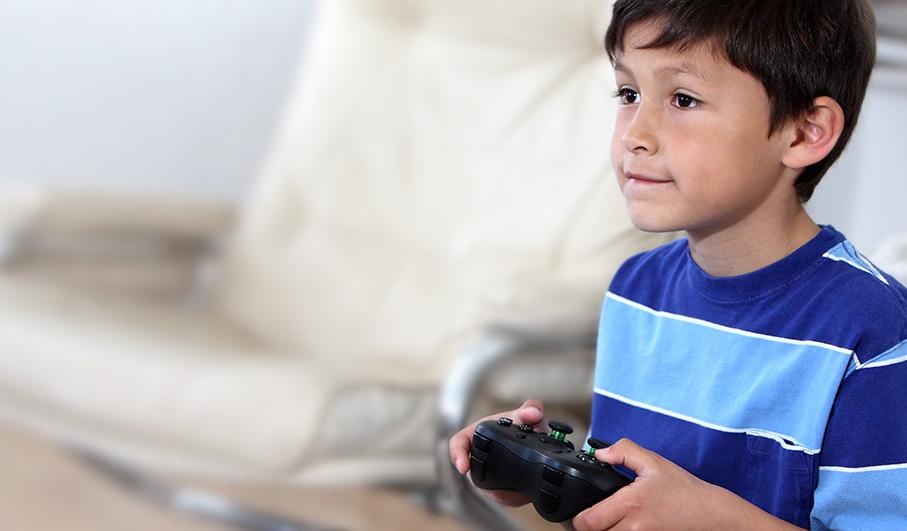Does My Child Have a Video Game Addiction?

Does my child have a video game addiction? By Maya Fleifel Sidani
As any parent knows, a good deal of parenting is saying ‘No’. No, you cannot eat candy for breakfast. No, you cannot put makeup yet. No, you cannot watch adult shows on TV. No, you cannot play on the computer all day.
But like any parent, you know how hard it is for kids to resist the lure of screens. ‘Just 5 more minutes,’ they beg in earnest and when you cave in, you just know another hour will have gone by with their noses deep inside the screen.
Why are electronic devices so addictive?
According to some studies it would appear that the excitement of computers and video games causes the brain to release a chemical that is, in essence, addictive. For any parent who has seen the fervor by which some kids play video games, this news is no surprise.
Video games are becoming increasingly popular with young children, and since children lack impulse control, they are more likely to become addicted.
Why is this addiction detrimental to our kids?
When time spent on the computer, playing video games or cruising the Internet reaches a point that it harms a child's or adult's family and social relationships, or disrupts school or work life, that person may be caught in a cycle of addiction.
Like other addictions, the computer or video game has replaced friends and family as the source of a person's emotional life. Increasingly, to feel good, the addicted person spends more time playing video games or searching the Internet. Time away from the computer or game causes moodiness or withdrawal.
When a person spends up to ten hours a day or more rearranging or sending files, playing games, surfing the net, visiting chat rooms, instant messaging, and reading emails, that easily can reach up to seventy to eighty hours a week on-line with the computer. Major social, school or work disruptions will result.
What are the symptoms of computer or video game addiction?
- Most of non-school hours are spent on the computer or playing video games.
- Falling asleep in school.
- Not keeping up with assignments.
- Worsening grades.
- Lying about computer or video game use.
- Choosing to use the computer or play video games, rather than see friends.
- Dropping out of other social groups (clubs or sports).
- Irritable when not playing a video game or on the computer.
There are even physical symptoms that may point to addiction:
- Carpal tunnel syndrome.
- Sleep disturbances
- Back, neck aches
- Headaches
- Dry eyes
- Failure to eat regularly or neglect personal hygiene
- Pain in the fingers or thumbs
How do you curb computer and video game addiction?
Video games, if not too violent, are important for the child’s mental skills such as problem-solving, strategic and critical thinking. But it’s important that video and computer games are played in moderation. Parents should provide a selection of activities, not just the ones that have the most action or are addictive. Choose some that involve problem-solving or good storylines. Also, aim for a balance in your child's life. Sports activities are important, as is reading. Just think of computer games as one more component in a child's exploration of what's out there in life.
- Give children educational rather than violent games.
- Encourage video game playing in groups rather than as a solitary activity.
- Set time limits on children's playing time. Tell them they can play for a couple of hours after they have done their homework - not before.
- Ensure children follow the video game manufacturer's recommendations. For example, they should sit at least two feet from the screen, play in a well-lit room, never have the screen at maximum brightness, and never play when feeling tired.
- Finally, if all else fails, take away the games console and give it back on a part-time basis when appropriate













 Parenting Articles
Parenting Articles

